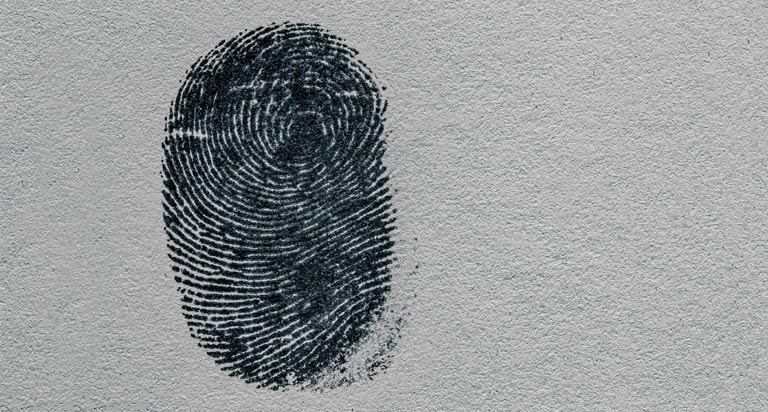Fraud Alert, Security Freeze, and Credit Report Lock


Highlights:
- Fraud alerts encourage lenders and creditors to take extra steps to confirm your identity before issuing you credit.
- Security freezes and credit report locks are tools that can help restrict access to your credit report so that new credit accounts cannot be opened.
- Security freezes must be placed separately at each of the three Nationwide Credit Reporting Agencies (NCRAs).
When it comes to your credit, you may hear terms like “fraud alert,” “security freeze,” and “credit report lock.” While each one is designed to help you better protect your personal information, they do so in different ways. Here's a closer look at each.
What is a Fraud Alert?
A fraud alert is a notice that is placed on your credit reports that alerts credit card companies and others who may extend you credit that you may have been a victim of fraud, including identity theft. Think of it as a “red flag” that makes companies take steps to verify your identity before extending credit in your name.
You may contact any of the three nationwide credit reporting agencies (NCRA) — Equifax®, Experian® and TransUnion® — to request a fraud alert. Once you place an alert with one of the bureaus, that bureau will send your request to the other two.
| Protection and Requirements | Active Duty | Initial | Extended |
|---|---|---|---|
| For active duty servicemembers | ● | ||
| For when you believe you are or may be the victim of ID theft | ● | ||
| For when you submit an identity theft report | ● | ||
| The lender is required to verify the requester's identity before approving new credit | ● | ● | ● |
| The lender is required to verify the requester's identity by your specified contact method or in person | ● | ||
| Free consumer report(s) | ● one |
● two |
|
| Exclusion from prescreening lists | ● two years |
● five years |
Fraud alerts can be placed on your credit reports for free, and there are three types:
Initial (one-year) Fraud Alert
- Place this alert if you believe you are, or may become a victim of fraud or identity theft.
- When you or someone else attempts to open an account in your name or make changes on an existing account, such as increasing the credit limit, the lender or creditor must take reasonable steps to confirm you are who you say you are.
- Lasts for one year. If you want to keep the initial fraud alert active on your credit reports, you'll need to renew it after that.
- You are eligible for one additional free credit report when placing this alert.
Extended Fraud Alert
- Place this alert if you are a victim of fraud or identity theft. It requires a copy of a valid police or law enforcement agency report, or a Federal Trade Commission Identity Theft Report.
- A lender or creditor is required to verify your identity in person or by your specified contact method before opening new accounts or making changes to existing accounts.
- Lasts for 7 years.
- Allows you to request two free credit reports from the three nationwide credit reporting agencies during the 12-month period following the placement of the extended fraud alert, and your name is removed from pre-screened credit card and insurance offers for 5 years.
Active Duty Alert
- An active duty alert is available for service members on active military duty, and helps minimize risk of fraud or identity theft.
- The active duty alert is similar to an initial fraud alert: companies must take reasonable steps to verify your identity before opening new accounts in your name or modifying existing ones.
- An active duty alert is free and lasts for one year, and your name is removed from pre-screened credit card and insurance offers for two years.
How Do I Place a Fraud Alert?
You can place an Initial One-Year or Active Duty Alert on your Equifax credit report by creating or signing into your myEquifax™ account. You can also call Equifax at 1-888-Equifax (1-888-378-4329) or send a request by mail. To place an Extended Fraud Alert, download this form for instructions and mailing address.
Placing an initial or extended fraud alert allows you to request your credit reports from the three NCRAs.
What is a Security Freeze?
A security freeze, also known as a credit freeze, is a free tool that can help prevent unauthorized access to your Equifax credit report. Placing a security freeze is one step you can take to restrict access to your Equifax credit report, with certain exceptions. This will restrict access on who can still access your Equifax credit report to open new accounts.
Once a freeze is placed on your Equifax credit report, it prevents most access to it by certain third parties, like lenders and creditors. This means if you're applying for credit – such as buying a car or requesting a loan, you'll need to temporarily lift or permanently remove the security freeze to allow a credit check.
Security freezes must be placed on your credit reports separately at each NCRA. Placing, lifting and removing a security freeze is free.
How Do I Place a Security Freeze on My Equifax Credit Report?
You can place and manage a security freeze on your Equifax credit report online by creating or signing into your myEquifax account. You can also place and manage your security freeze by phone: call us at 888-Equifax (1-888-378-4329). You may be asked to answer questions to verify your identity, for your protection. Also, you can place a security freeze by mail by downloading this form with instructions, including the documents you'll need to verify your identity and address.
You can also temporarily lift or permanently remove a security freeze from your Equifax credit report by mail with this form.
To place, temporarily lift, or permanently remove a security freeze on your Experian or TransUnion credit report, you will need to contact them directly.
- Experian: www.experian.com/freeze/center.html
- TransUnion: www.transunion.com/credit-freeze
What is an Equifax Credit Report Lock?
An Equifax credit report lock, or credit lock, has the same impact on your Equifax credit report as a security freeze, but isn't exactly the same. An Equifax credit report lock is a feature of Equifax Complete™ Family Plan, Equifax Complete™ Premier, Equifax Credit Monitor™ and Equifax Complete™ products.
An Equifax credit report lock generally prevents access to your Equifax credit report to open new credit accounts. If you want to apply for credit, you must unlock your Equifax credit report to allow a credit check. You cannot have both a freeze and lock on your Equifax credit report at the same time. If you prefer to switch from one service to the other, you will first need to remove your current service and to replace it with the other. There are exceptions on who can still access your credit report if it's locked, like a security freeze.
Placing a fraud alert or security freeze on your Equifax credit report, or locking your Equifax credit report can help better protect against identity theft.
Get your free credit score today!
We get it, credit scores are important. A monthly free credit score & Equifax credit report are available with Equifax Core CreditTM. No credit card required.



